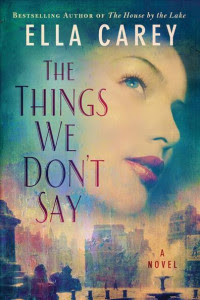When Braden Healy’s mother takes him to a violin shop to buy him a violin, a cello across the room beckons him, speaks to him, and so begins a love affair that will last a lifetime.
Ophelia MacPhee, Phee for short, is eighteen years old and has been working in her grandfather’s shop, MacPhee’s Fine Instruments, for many years when he calls her to his apartment to give her her birthday present. She expects, perhaps, her grandmother’s emerald ring or something related to the luthier business. Instead, her grandfather tells her he is giving her the business. With his attorney present as a witness, he induces Phee to sign a contract saying she will take over the business.
I Ophelia Florence MacPhee, being of sound mind and purpose, do hereby swear a sacred oath to accept and discharge all obligations, tangible and intangible, related to the post of luthier.Although uneasy about signing and wondering about the intangible obligations, she signs the document . Her grandfather explains he is dying of cancer and that necessitates the rush to have her sign.
The eccentric grandfather has, of course, sold many fine instruments over the years, and in a few cases has insisted the purchaser enter into an agreement to play the instrument until his/her death, and then the instrument is to be returned to the luthier. ‘A forever home, you understand. A marriage. This cello is not a thing to be acquired and cast aside. And when you die and the bond is broken, your next of kin will bring the cello back to me. Here”
Braden Healey is only twelve when he enters into this bond, and while the luthier thinks him a bit young to enter into such a bond, he remarks only that the cello has spoken. “She is the boss of us, yes? Not the other way.”
If the bond is broken, there will be dire consequences.
And so the scene is set, Phee must keep her oath concerning this cello and a handful of other instruments sold under similar contracts. Unfortunately, many years later, when Branden is a successful cellist with a seat on the Seattle symphony, his hands are severely frostbitten as he attempts to save his brother-in-law who has fallen through a hole in the ice while ice-fishing.
When Braden can no longer play the cello, he sinks into a depression and into alcoholism. On several occasions, Phee meets with Braden to exhort him to return to playing the cello. He laughs ruefully, displaying his hands which he can use for day to day things, but which can no long feel the strings of the cello.
The author is thinking of her character Braden (and others) when she opens her novel with this quote from Nietzsche, Without music, life would be a mistake.
Adding to the tragic life of Braden, his wife and son are killed in a car accident, and he returns to his home to try to salvage a relationship with his seventeen-year-old daughter. She is also a cellist, but gives it up after her mother and brother die. While both she and her father hear cello chords echoing in their lonely house, neither plays the lovely instrument as it languishes in its corner. It is every bit as important as a character in this novel as the others I have mentioned. Kerry manages to convince me that the cello does have a soul, its voice rising and falling as the events in the novel occur.
The granddaughter, Phee, was there the day that Braden signed the contract, entered into the oath, and when he returns home, she Is diligent in her attempts to get Braden to honor his contract. She believes in the curse her grandfather has put on Braden should he break his bond. Slowly, Phee falls in love with this boy-become –man, and their relationship adds a sweetness to the story, as does a budding relationship between Allie, Braden’s daughter, and Ethan, a boy who dates wild girls and rides a motorcycle.
Stars and boys like Ethan are great at a distance. Too close, and they’ll burn your wings and dump you into the sea., a lesson she learned both from the story of Icarus and watching the dramas of other girls who have dared to fly too close to the sun.In addition to really interesting talk about music and fine instruments, this is a compelling story. I played Bach’s marvelous cello suites as I read it, and soon, like Braden and Allie and Phee, I began to hear cello chords throughout the day. Braden refuses to talk about the particulars of his brother-in-law’s death in the frozen lake, and this mystery adds one more layer to a really captivating tale.
Will Braden play again, and what will be the dire consequences if he does not? These and other questions await your reading of this splendid novel.









